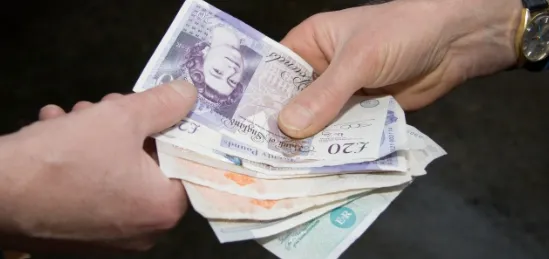I wrote a couple of days ago about how after a long term trend of Britain's economy moving AWAY (rapidly) from cashless transactions, the last couple of years have seen a reversal of this trend. The proportion of transactions carried out in cash seems to have settled at just under 20%.
I got to thinking about the informal cash-based economy more generally in the UK and my thoughts are that'll it's unlikely it will ever disappear completely, it's simply too useful to the State.
That may sound counter-intuitive given that the State requires monitoring of transactions for tax generating purposes, and this is much easier to automate with digital transactions, while cash opens up greater scope for tax-dodging.
However I think the benefits of allowing cash to continue far outweigh the potential for tax-loss for at least the following four reasons...

A lot of cash transactions are in regular shops, and these people are going to record everything for tax, it simply isn't worth the risk to most businesses to not record a high proportion of their cash based transactions to save 30% on tax.
As a general rule people who use cash are also digitally excluded, and these tend to be poorer people. These are the kind of people who won't be earning enough to be taxed anyway, so there's little point monitoring their expenditure.
Moreover, NOT monitoring their expenditure, and just letting the informal economy 'take care' of them is going to cost the State less, probably.
An estimated 2.5 million people work in Britain's informal economy (2016 figures) making up 12% of our GDP, that's around the £300BN mark. A lot of this is cash in hand work, a lot of this goes to illegal workers, and a this contributes to cheap goods. This is very handy and requires cash!
From a libertarian view it's good to have some economic activities going on not monitored by the state...
Also, if we had a total economic surveillance state and it was clear that, for example, 20% of the population aren't getting enough to survive, there's maybe more of an obligation on the welfare state to provide enough.
However when we have a cash based economy which also means a greater degree of uncertainty and freedom around individual economics, it's POSSIBLE that people actually have enough stashed away under the mattress, OR it's their fault for making bad spending decisions, which kind of lets the State off taking more responsibility.
It's interesting to note that it's quite difficult to find stats on the size of the UK's shadow economy, it seems that the government isn't that interested in knowing about it.